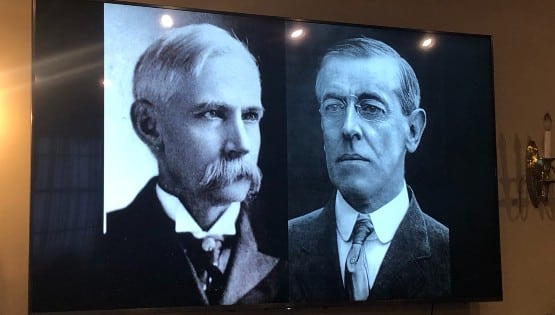
“Today’s announcement is another positive step forward in improving the high quality of life that Virginia is known and continually recognized for,” Kaine said. “Energy efficiency and conservation—along with renewable and alternative energy production—will lower utility bills for consumers, decrease our dependence on foreign energy sources, reduce greenhouse gas emissions, and provide a safer and cleaner environment for Virginians to live, work and play.”
The $40 million in ARRA funding will be allocated as follow:
· $15 million to the recently announced Virginia Energy Efficiency Rebate Program which will provide rebates to consumers who purchase energy efficient products and equipment.
· $15 million to the new Renewable Energy Rebate Program which will provide rebates to Virginians who install renewable energy generation systems—such as solar or wind systems.
· $10 million for biomass and waste-to-energy projects, available to localities and individual projects.
The Virginia Energy Efficiency Rebate Program provides rebates of 20 percent for expenses, or up to $2,000 per household, for residential consumers and $4,000 for commercial consumers on purchases made after June 25, 2009. Virginians can also receive up to $250 of the cost of having an energy audit conducted by a certified energy auditor. Those wishing to receive a rebate will be required to complete an application and proof of purchase. Beginning today, consumers can visit the Department of Mines, Minerals, and Energy website to sign up for email notification when applications are available.
The Renewable Energy Rebate Program provides rebates on purchases made after June 25, 2009. Rebates will be based on the capacity of the generating system—for example a residential photovoltaic system is eligible for $2,000 per kilowatt , up to 10 kilowatts in size. Residential and commercial consumers can receive a $1,000 per kilowatt rebate for solar hot water systems.
The $10 million for biomass and waste-to-energy projects will fund a wide range of initiatives such as digesting agricultural waste into biogas, using landfill gas to produce electricity, and using biomass for combined heat and power.
In addition to the $40 million for the SEP, Kaine also announced $9.7 million in Energy Efficiency and Conservation Block Grants (EECBG). These grants will be distributed to small local governments for a number of eligible purposes, including:
· Development and implementation of an energy efficiency strategy.
· Energy audits and retrofits of homes and commercial buildings.
· Energy efficiency retrofits of nonprofit organizations and governmental buildings.
· Transportation measures to conserve energy.
· Financial incentive programs for energy efficiency improvements.
· Application of energy distribution technologies such as district heating and cooling systems.
· Installation of light emitting diodes (LED) in traffic signals and for indirect lighting of the outside of buildings.
· Use in any government building of onsite renewable energy such as solar thermal, solar electric, wind energy, or geothermal.
Finally, Virginia’s can save even more on energy efficient products Oct. 9-12, 2009 during the state’s third annual sales tax holiday on ENERGY STAR and WaterSense qualified products. During this annual holiday, consumers can save money by buying certain qualified products tax-exempt, which will also deliver savings for years to come through lower home utility bills. As with last year’s holiday, high-efficiency products with ENERGY STAR or WaterSense certification will be exempt from sales tax.
Today’s announcement comes as Gov. Kaine continues to advance his “Renew Virginia” initiative—an effort to promote renewable energy, create green jobs, and encourage preservation of the environment. During his administration, Kaine has incentivized the production of cleaner energy, surveyed the emissions of facilities previously grandfathered out of the Clean Air act, dedicated over a billion dollars to Chesapeake Bay cleanup, protected nearly 350,000 acres of open space, and led the effort to promote regional cooperation to combat climate change.










